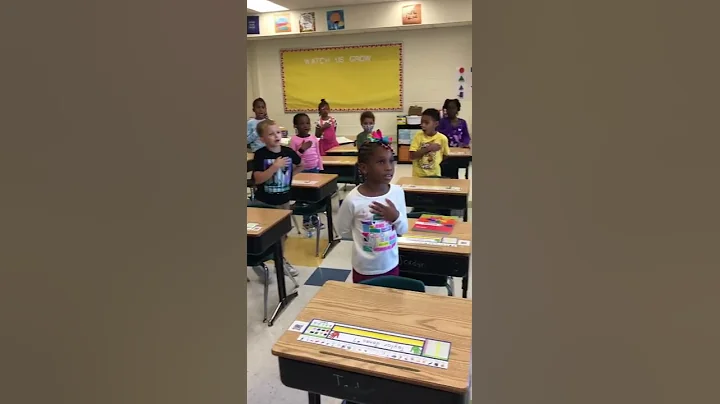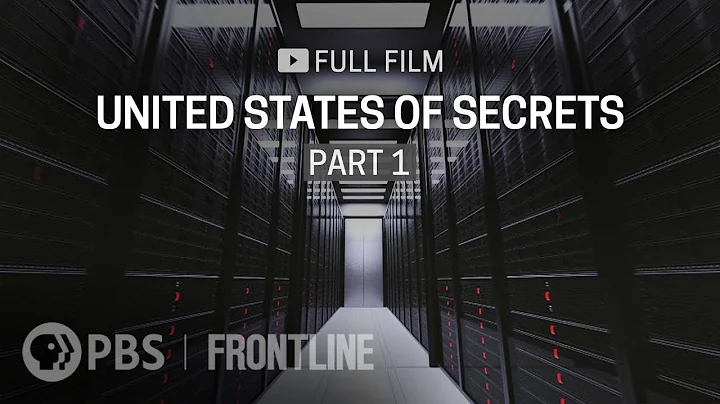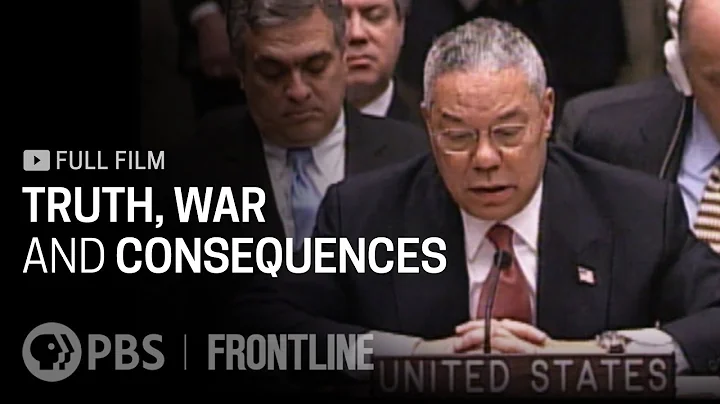This is the 24th story in the "Iron-Blooded Changjin Lake" series!
At 3 pm on April 11, 1951, the U.S. State Department held a press conference and announced President Truman ’s order and statement to dismiss MacArthur .
html On April 19, MacArthur, who returned to the United States, delivered a speech entitled "Old Soldiers Never Die."
On that day, major newspapers in the United States immediately published the news of MacArthur's congressional speech:
"Veterans never die - after listening to MacArthur's congressional speech, no one on the Democratic side was filled with tears, while on the Republican side, Not a single face was dry. "
At this time, many wounded soldiers of the 1st Marine Division who participated in the Battle of Changjin Lake had already returned to the United States from Tokyo to continue their recovery.
After seeing the newspaper of the day, Sergeant Burch of the 2nd Battalion, 1st Marine Regiment, who lost three of his toes due to freezing in the Battle of Changjin Lake, called Lieutenant Yang Xi, the platoon leader of E Company, 2nd Battalion, 7th Marine Regiment. : "What do you think of today's newspaper news?"
Yang Xi said: "Whether it's the Democratic Party or the Republican Party, these people are supported by taxes on the insurance money on the Korean battlefield."
"There is no one on the Democratic side who is not There were tears in the eyes, and there was not a dry face on the Republican side." Burch repeated the words in the newspaper.
Yang Xi said: "I think these tears are for General MacArthur's outstanding performance in fighting Japan in the Pacific War, and not for his performance on the Korean Peninsula, absolutely not! General MacArthur's command in Korea was very funny, even a little... It's ridiculous, because he is not a so-called expert on Eastern China. The battle at Changjin Lake was a nightmare, Captain, I never want to go back to that ghost place again in my lifetime."

MacArthur
Birch again. He called Tom, a soldier from Company G, 3rd Battalion, 1st Marine Regiment, who had lost seven toes from the cold, and asked him if he had read the day's newspaper.
Tom said humorously: "Captain, you should ask me if I have thawed it?"
Before Birch could say anything, Tom said again: "Captain, I have survived, and I never dream of going back. In that terrible hell, we went to gather again."
From this moment, Burch came up with the idea of interviewing the surviving teammates and writing a book "Gathering in Hell".
One year later, on December 25, 1977, Smith, the 84-year-old commander of the 1st Marine Division, passed away.
This day happens to be Christmas, and it is also the anniversary of the retreat of the 1st Marine Division to Busan.
After the Battle of Changjin Lake on March 5, 1951, Smith left the Korean battlefield and returned to the United States as commander of Camp Pendleton Barracks in California. In July 1953, he was promoted to lieutenant general and was responsible for commanding the U.S. Atlantic Fleet, Navy and Army. Team, he retired from active service on September 1, 1955 and was promoted to general.
After retiring, Smith focused on writing memoirs of his own war experience. After eighteen years, he published his memoirs in 1973.
After the memoir was published, Sergeant Birch of the 2nd Battalion, 1st Marine Regiment interviewed Smith and asked: "Sir, what do you think of our opponent back then - the Chinese Volunteer Army ?"
Smith repeated a sentence in his memoir: " The battle of the Chosin Reservoir was the Iron Troops fighting the Iron Man!"
After Smith's death, Birch felt more and more pressed for time, so he accelerated the writing of the book "Gathering in Hell".

Smith
After the New Year of 1978, Burch interviewed the remaining Marines one after another according to the previously listed list.
Burch asked the black soldier Tovar: "I heard that you were captured. What is your impression of the Chinese army?"
Tovar said: "The Chinese army is very kind. The day I escaped, they actually discovered me. They could have shot me, but they didn't.
Birch asked: "Why is this?" "
Tova said: "I don't have weapons in my hands. Maybe, I passed some information between them and the Drysdale Task Force.
Birch asked again: "Then why did you come back again?" "
Tova said: "The Chinese army has nothing to eat. After being captured, they can only eat potatoes. Their soldiers don't even care about eating potatoes, and the same goes for senior commanders. I just want to leave this hellish place called North Korea and return home to the United States! "
When Burch visited Claypool, the military doctor of E Company, 2nd Battalion, 7th Marine Regiment, he was still running a clinic he opened after changing his career.
Claypool's memory of the Battle of Changjin Lake still lingers in Yudam-ni At dawn on December 28, 1950, when we fought at Highland 1282: “The Chinese officer, who was taller than me, could have shot me dead, but he didn’t fire. Perhaps the health soldier’s armband saved me. "
According to Claypool's introduction, Burch also interviewed Fields, a soldier of Company E who participated in the battle of 1282 Heights in Yudam-ri.
Fields, who had lied about having injured his balls, was not only married at this time, but And he and his wife gave birth to seven children.
Before Birch left, Fields said again:
"One more thing, sir. If my son or grandson went to war like I did, I would not want him to serve in Lieutenant Yancey's platoon. Lieutenant Yang Xi occupied twice as many positions as other platoons and killed twice as many volunteers as other platoons, but his losses were also twice as high as others. Maybe that's how the Marines fight, but I wouldn't want that on my children or grandchildren. "
According to Davis, commander of the 1st Battalion, 7th Marine Regiment, Burch also interviewed Lieutenant Li Chaoying, the platoon leader of B Company, 1st Battalion, 7th Marine Regiment.

Li Chaoying
Li Chaoying, who is over middle age, told Burch , he has had two marriages, but both ended in failure. His parents who opened the fruit shop at that time have long since passed away, and he is still living on the war insurance money from that year.
Birch also interviewed the 1st Marine Corps again. Colonel Chang Puller.
When Birch was interviewed for the first time in 1965, Puller, who was still a serving general, said to him: "Are you thawed, Captain? "
Looking at his subordinate Birch, Puller, who had retired, asked first: "You haven't thawed it yet, Captain? "
After that, Puller was silent for a long time, and did not mention a word about the Battle of Changjin Lake that year, until Martin left with some emotion.
Finally, Burch interviewed Company A, 1st Battalion, 1st Marine Regiment Captain Barrow.
At this time, Barrow had retired from his post as the 27th general commander of the U.S. Marine Corps.
Barrow recalled the battle of 1081 on the south side of the Watergate Bridge:
The volunteers wear cotton military uniforms, which are large, trousers-like trousers that fit everyone. They wear them with a rope around their waist, and then put on the cotton-padded jacket. The color matches the pants.
The volunteers' clothes are light yellow. They don't have steel helmets . They have pull-down ear cups that you can pull down around your ears
wherever we go. Whatever hardships they have endured, the volunteers have suffered much more than we have. Their faces and hands have traces of frostbite, which appear blue and black. No one in the world is more accustomed to discomfort and pain than the Chinese. . They didn't complain, they just accepted their fate.
When I left Zhenxingli, the A company I led had a total of 223 people. However, after the battle on the 1081th Highland, the casualties of A company were more than half. The 1st Battalion of the 1st Marine Regiment also suffered 372 casualties.
All the volunteers on Highland 1081 died bravely or froze to death on the battlefield. In the spring of this year, Birch was published. "Assemble in Hell", but had little social repercussions.
On January 20, 1981, Reagan, who was elected as the new president of the United States, delivered a speech at his presidential inauguration ceremony and said: "The battle of Chosin Reservoir is one of the classic battles in the history of human warfare."
As soon as these words came out, The Battle of Changjin Lake has become a hot topic both inside and outside the U.S. government and in all walks of life.

Reagan
That night, a reporter from a newspaper interviewed Burch, the author of "Gathering in the Region".
Reporter: At his inauguration, President Reagan called the battle of Chosin Reservoir one of the classic battles in the history of war. I think you agree.
Burch: The US military has fought many bloody and brutal battles, but the Battle of Chosin is indeed a classic example.
Reporter: Do you think the Battle of Chosin has a unique place in the history of the Marine Corps?
Burch: When I joined the Marines, the Marines were called "Old Brad." Survivors of the Chosin Reservoir battle are now known as "Cold Blades." And if we want to leave the Changjin Reservoir, we have to fight our way out.
Reporter: Some articles compared the Battle of Chosin to the Battle of Tarawa in World War II. About 15,000 Marines participated in that battle, and there were probably more than 7,000 casualties. What do you think of these two battles?
Martin: The two are comparable, but in Chosin we still have to fight the weather, and we are not attacking an island, but have been completely surrounded by six CCP divisions. For this reason alone, the Battle of Chosin is unique.
Reporter: What is your strongest memory of the Battle of Chosin?
Burch: In 1965, I went to Virginia to visit Lieutenant General Louis B. "Breast" Puller for the first time. The first thing he said when he saw me was, "Have you thawed out yet, Captain?" For fifteen years, the first thing he mentioned was the cold. When I evacuated Gutuli and woke up in a naval hospital in Japan, I said to myself: "Please never let me go to a cold place like that again!"
Reporter: It's hard to imagine being in that kind of cold battle.
Burch: I had a fountain pen in my breast pocket at the time. The ink froze, the pen cracked, and the water in the kettle froze. We had to pull the bolt of the M-1 rifle from time to time to prevent it from freezing. . It's freezing day or night!
Reporter: What is the lowest temperature?
Birch: Minus 54 degrees, not minus 40 degrees as some people say. One morning when I was eating cereal, I had hot milk poured over it. When I walked about 30 feet and sat down to eat, the milk had frozen into an ice lump. When I returned to China to study in college, I found information that the winter of 1950 in North Korea was the coldest since the first records were recorded in 1888. The cold was as sharp as a knife.
Reporter: How do you survive?
Burch: I grew up in blizzards in Iowa, , but I had never seen a winter like that in Changjin. Can you believe it's snowing? I have seen lightning in the snow many times. We can only hope for clear weather. Because when the snow stops and the weather clears, our F4U Corsair fighter-bombers will support us. Without the F4U Corsair fighter-bombers, no one would be able to leave the Chosin Reservoir.
Reporter: Will the walking wounded participate in the battle?
Birch: I saw a Marine captain with one eye covered by a bandage, one of his trouser legs in tatters, holding a mortar aiming rod, walking in front of his men. I still remember a young Marine who was hit in the face by shrapnel. When the health worker was treating him, a Chinese incoming machine gun opened fire. Snow and mud flew around the two men. The wounded man just waved towards the mountain. He waved his fist and shouted: "Kill me if you want, but don't scare me to death!"
Reporter: Let me ask a boring question, how can you do it in such weather?
Birch: This question is not ridiculous, and you are not the first to ask it. We'll wait until the "day heat" around 3pm and try to figure it out.
Reporter: How can you fight when it’s so cold?
Burch: Many of our automatic weapons are jammed, howitzers have to be fired from time to time to function properly. All vehicles need to be running all the time so they don't freeze, and once stalled they may not be able to start. And the Chinese machine gun bullets were flying around. This is a nightmare I can't forget.

Officers and soldiers of the 1st Marine Division of the US Army
Reporter: Would you blame anyone for being trapped in Changjin?
Birch: Yes, I blame the top brass of Tenth Army and MacArthur's headquarters for the predicament we found ourselves in. Many weeks ago, the 1st Marine Division reported sightings of Chinese troops in the mountains. We killed some and captured some, but the "guys at the rear" didn't believe our reports. Therefore I blame the corps commander, Major General Almond, and his staff for our suffering. He sent a contingent of the Tenth Army, consisting of part of the 7th Division, to the east bank of the Chosin Reservoir without proper support or means of contact, and the force was effectively wiped out.
Reporter: What role did General MacArthur play in this disaster?
Birch: Senior Japanese officials had told MacArthur not to launch winter operations in that mountainous area. They had ruled Korea for many years and knew how dangerous it was to allow a lone force of the 1st Marine Division and the 7th Army Division to penetrate deep into the vicinity of the Chosin Reservoir.
Reporter: How did the medical staff perform during the battle?
Birch: The corpsmen and doctors were outstanding as always. Those naval medical personnel had to perform rescue and operations under harsh conditions, and there was a high possibility of being killed. The medical staff were all heroes. I want to mention one thing, because it's so cold, the blood doesn't come out when you get hurt. The blood was frozen, saving the lives of many Marines.
Reporter: What do you think of commanders below the division level?
Birch: Our command is extremely powerful. At the end of the Battle of Chosin, I was very tired. After I gave the order, I asked my subordinates to repeat it because I was not sure whether I really gave the order. Duncan, a World War II veteran of the Marine Corps, was working as a photographer for a magazine in Chosin. He asked a soldier what he wished for, and the man replied, "Give me tomorrow." This was Chosin's way of survival. Start the day by surviving, then pray that you will survive tomorrow too.
Reporter: Have you ever felt like you couldn’t fight anymore?
Birch: I never felt like I was in a hopeless battle. I didn't know if I would survive, but I knew that the Chinese army could not trap the 1st Marine Division.
Reporter: The relationship between the Marines is very close, right?
Birch: The Marine Corps' pride comes from its own merits, not bragging. We have a brotherhood and we have to jump out of the trap like Marines or we won't be able to leave at all.

Volunteers during the attack on Changjin Lake
Reporter: Can you talk about something specific?
Birch: These things could fill your notebook. The flares illuminated the Chinese soldiers, who came in waves across the snow-covered land, like logs moving, no! The attacks of Chinese soldiers were like patches of forest that could walk. In the end, we fought with the Chinese soldiers with bayonets. I always wonder what the Chosin area will look like the following spring. Because when the fighting stopped after dawn, I saw the corpses of Chinese soldiers piled up like a pile of wood.
Reporter: Have you ever experienced a near-death escape?
Birch: One morning I saw a Marine smoking a cigarette, and a bullet just knocked the cigarette right out of his mouth. I suddenly felt my left boot come loose, a bullet broke the laces, and when I looked down, my water bottle was knocked out of my belt. Late one night, as I just crawled out of my sleeping bag, a Chinese submachine gun opened fire, hitting my sleeping bag about 20 times.Down is flying!
Reporter: What do you think of Chinese soldiers? Are they good fighters?
Birch: I personally don’t think they are tactically excellent fighters, but they are very disciplined and can endure hardship. The blast of trumpets in the cold night sky, the shouts of Chinese soldiers as they surged toward our position—these were sights and sounds I will never forget.
Reporter: Most of the fierce fighting happens at night, right?
Birch: Right. The Chinese army's tactic is to appear suddenly when the night is coldest and darkest. We always heard a trumpet coming from the surrounding hills, then another from the hills to our right, then another to the left. How scary!
Reporter: Have you ever encountered hand-to-hand combat?
Birch: Oh my gosh, there was! I remember a Chinese soldier punching me in the frozen nose. I caught him and bit his ear off. Literally, I bit off one of his ears and then killed him.
Reporter: Was there a lot of hand-to-hand combat?
Birch: God, yes! We must fight the Chinese man-on-man. This is the most dangerous battle. For two weeks and fourteen days we fought desperately day and night against an almost invincible enemy. During the eleven days, eleven people received the Congressional Medal of Honor. It is extremely difficult for Marines to receive the Congressional Medal of Honor, which is a testament to the brutality of fighting the Chinese.
Reporter: Do you have airdrops?
Birch: Airdrops are a godsend. Without the C119 airdrop of food and ammunition, especially the airdrop of huge bridge components, to rebuild a destroyed bridge south of Gutuli, not a single vehicle loaded with wounded bodies and equipment would be able to get out. The bridge spans a deep ravine, with cliffs thousands of feet on one side of the road and hundreds of feet on the other. God, airdrops are a godsend! Almost every one of us made a colorful scarf out of parachute silk.

Officers and Soldiers of the 1st Marine Division of the U.S. Army
Reporter: Do the memories of this World War always bother you?
Birch: I can live with the bad past and cherish the good memories. I still remember a Marine who had one eye punched out and hung on his face, but he still led his men to fight back against the enemy. This kind of deed was very common in the battle of Chosin. I now believe that I have a responsibility to the future and that it is important that young people have the opportunity to understand the past, not for me but for people in the future.
Reporter: Do you hope that the younger generation will know and remember your experience in Changjin?
Birch: Definitely hope! I hope the next generation will not forget what their parents experienced in North Korea. Not our heroic deeds, but understanding a group of brothers who fought side by side against vastly outnumbered enemy forces and harsh weather to break out of Chosin as a fighting force. The Chinese army was ordered to destroy the 1st Marine Division, but they failed. There is something unique within us, and that is the Marine Corps spirit.
Reporter: How do you evaluate yourself?
Birch: I am a survivor. It makes me sad to remember those comrades who didn't survive, and it gives me satisfaction to know that we did the right thing, a mixture of pride and sadness. I'm glad to have survived. I could close my eyes and see the tattered, frostbitten Marines trudging away from Chosin. I am proud to have participated in the Battle of Chosin.
Reporter: What actions did you see that you considered outstanding heroic acts?
Birch: Few of us at the time could describe the characteristics of heroic behavior. It is only after the incident is over, when recalled in the comfort of a civilized society and in the safety of one's own home, that heroism becomes characteristic. We were too busy fighting for survival to evaluate heroic acts. This is the characteristic of Chosin's heroes - he is a hero without knowing it. Cowardly behavior is easy to distinguish, heroic behavior is difficult to distinguish because it is too common. Fighting back with frozen feet was an act of bravery in itself, but no one was awarded a medal for it. Romanticizing war is foolish. I disagree with the statement that war is great.But there have to be people of faith who are willing to fight for those beliefs and sacrifice for them if necessary.
Reporter: What did you long for most when you were in Changjin?
Birch: Come out alive, come home alive!
( text comes from my manuscript "Iron-Blooded Changjin Lake", media reprinting must be authorized, infringement will be investigated )
┃Ge Weiyang: writer (non-fiction field), children of exiled students in the Anti-Japanese War, martyrs in the Battle of Changjin Lake Descendants.
┃"Stepping on the Everlasting Fire" is collected by the National Library , and the documentary filmed based on it is listed as an exchange project with Taiwan.





















